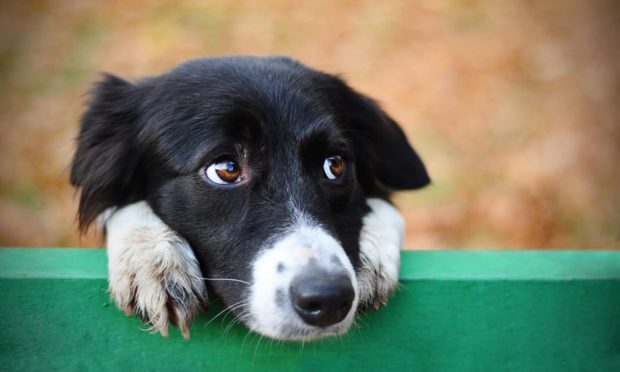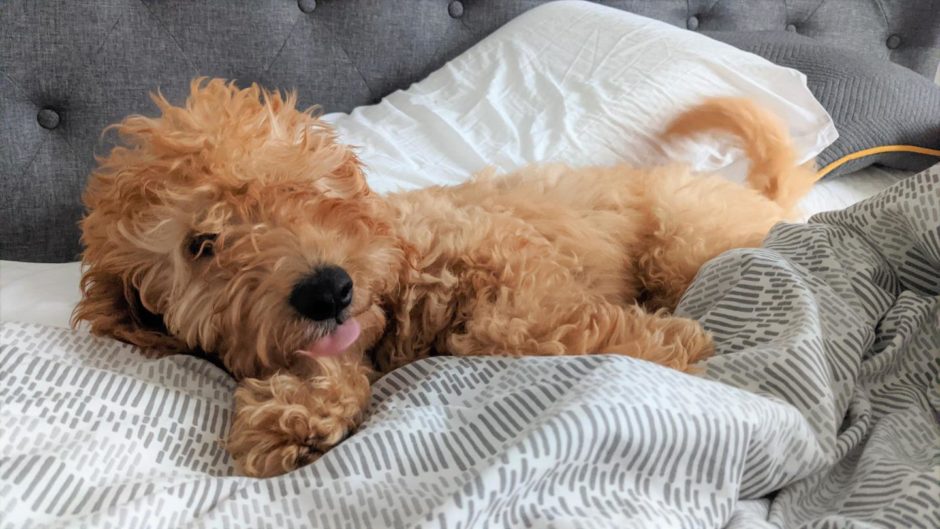We’re all looking forward to getting out of the house in the post-lockdown world, but our dogs might not share our excitement.
Some dogs thrive in busy, stimulating environments like the local pub. But others are more comfortable with a nap and a bone at home in their favourite spot.
Whichever type of dog you have, they’re going to need a loose lead as you guide them through the return to normality.
That’s the advice from experts at the Scottish SPCA and the UK’s biggest dog welfare charity, Dogs Trust.
Here are five potential sources of stress for your dogs as we move towards post-lockdown life, and expert tips on how to navigate each situation.
Pooches and pints
Your favourite beer garden has been bac for a while, but maybe you haven’t taken the dog along yet. The Press & Journal’s interactive map of local beer gardens lets you know where the dog-friendly pubs are near you:
If you do decide to bring the dog along for a pint, Dogs Trust recommends teaching them how to “settle” beforehand. Settled behaviours include lying still, not starting at you or whining and not tugging on the lead.
Gradually reward them for progress, and start at home where there are fewer distractions.
Alone again
One of the biggest sources of stress in the coming year will be when owners return to work and school, said Rachel Casey, director of canine behaviour at Dogs Trust.
To ease their stress, slowly reintroduce your dogs to being alone. Create a space in the house for them, and if your dog shows signs of worry – barking, whining, scratching at the door – try spending shorter times apart.
By gradually increasing time apart, you can ensure they are able to settle on their own.”
-Rachel Casey
Mike Flynn, chief superintendent of the Scottish SPCA, suggests leaving your dog with a trusted neighbour for short visits.
And remember that your dog didn’t create this situation, Mr Flynn said.
“What we’re saying to people is that it’s not the dog’s problem, so you have to take the time to work with your dog.”
Reuniting with friends and family
Introducing new smells and new faces into your house too quickly can make dogs anxious, even if the guests are people you think your dog is already knows.
Try teaching your dog to head to a safe place – such as the bed or their kennel – when they hear the doorbell ring.
Training pandemic puppies
If you’re one of the thousands of people in Scotland who adopted a dog during lockdown, there’s a chance that your pet might have missed out on the kind of socialisation that’s important for its development.
It’s never an easy thing when your dog’s been so dependent for so long.”
-Mike Flynn, chief superintendent Scottish SPCA
If your dog is a puppy and only knows the pandemic lifestyle, Dogs Trust recommends spending extra time training them to adjust. Post-lockdown life will be full of new dogs, new people and new sights, sound and smells, so be patient.
Learning to cope when left at home
Ultimately, Rachel said, it all comes down to dogs adjusting to more alone time. Staving off separation anxiety will be the most important way to help dogs adjust.
“Dogs that had separation anxiety before the pandemic are likely to get worse when left again as owners head back to work.
“Just make sure that you factor in time apart from your dog each day to help them be able to cope when alone – this could be separated from you by a door or child gate very briefly to start with whilst you’re working.”
More help for dogs post-lockdown
Mr Flynn said that it’s important to get tips from trusted authorities such as Dogs Trust or the SPCA. And for advice tailored to your dog and your situation, no one beats your local vet.
“They’ll be able to advise someone that they know and trust in your area who is a person to help you with your problems. There are lots of things you can do, but remember it’s never an easy thing when your dog’s been so dependent for so long.”
Read more from the Schools & Family team
Could 2-minute ‘brain breaks’ and LESS planning help Scottish schools catch up with Finland?


